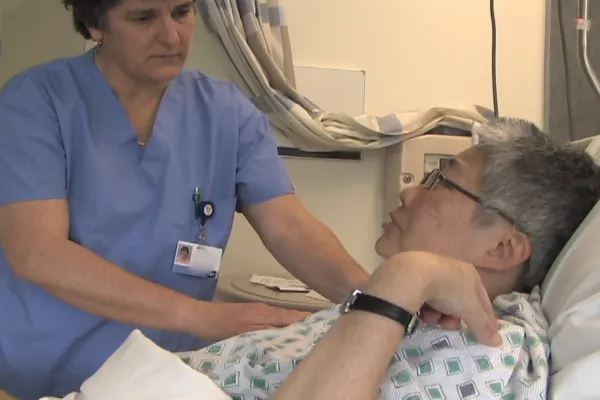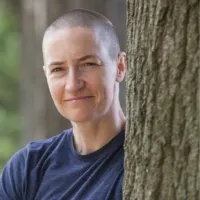Our Blog

Redefining Pain Management: The Transformative Role of Palliative Massage Therapists
Dame Cicely Saunders defined the concept of “total pain” as the suffering that encompasses all of a person’s physical, psychological, social, spiritual, and practical struggles back in 1964. Now, that’s a definition.
As such, it’s not surprising that pain is a common aspect of the human experience. So common, perhaps, that it escapes the curious, connected attention it deserves. OTC medications are considered the first line of treatment for pain in most cases, with opioids second. We cling to these ungraspable abstractions like “quality of life,” “unpleasantness,” and “distress,” that languish as anemic throwaway descriptors of the rich, nuanced, and deeply important suffering of the people experiencing them.
Meanwhile, the palliative perspective seems to agree that “total pain” is an important and enduringly relevant concept. Dr. Saunders developed this concept after literally thousands of conversations with people living and dying with cancer in the 1960’s. Poorly managed suffering and aggressive treatment were part and parcel of the 1960’s cancer experience, so the data set that informs this concept is solid…and ephemeral. Just like pain.
Massage Therapy as Standard Care
Addressing total pain effectively demands that we move away from reductive perspectives about its causes and possible solutions. The discipline of massage therapy belongs in this equation, as a trusted partner in standard care. Massage therapists will never (nor should they ever) replace opioids or social work but there is promising data emerging about the unique ability of massage therapists to address total pain.
The effects of massage therapy are often rather intangible– a feeling of ease, of well-being, of restfulness. I’ve never met a patient who could point to the unease or tell me where the restlessness has taken up residence. Yet we know these issues color everything about their experience, from interactions with staff and family, to their sense of whether or not their pain regimen is “working,” to whether they feel they can trust their doctor.
Research About Massage Therapy in Palliative Care
In a pair of studies Healwell published in 2021 and 2023, pain decreased measurably in all arms (n=387), but when you look at the data, they show that an increase in peace and a decrease in distress occurred for significantly more patients than for pain alone. So, yes, massage therapists were involved in decreasing patients’ experience of discrete pain, but even when their subjective pain scores did not decrease, it was often the case that a patient’s sense of peace increased and their experience of distress lessened. (I can’t resist telling you that none of our study’s subjects reported constipation, delirium, or respiratory depression as a side effect of massage therapy.)
Hospitalized patients typically report pain and other symptoms, a sense of isolation, and difficulty finding peace, personal connection, or a sense of truly restorative rest. Qualitative survey responses pointed to the ability of specially trained massage practitioners to address these and other common symptoms. Many of the participants in our studies commented on the emotional toll of illness and hospitalization, reflecting that their work with the massage therapists facilitated coping with negative emotions and physical pain by creating a space for calm, positive energy, clarity, or focus.
When massage therapists have appropriate training and are then given the space to practice collaboratively within the broad scope of their complex, psychosocially relevant discipline, the “touching” part of massage therapy gives way to an exchange between two people that can result in enhanced coping, more peace, and less distress. Certainly, these effects were likely “temporary,” but is there an opioid or other standard pain therapy (beyond surgery) whose effects are not temporary?
The Need for Specially Trained Massage Therapists
Palliative-trained massage therapists bring to bear advanced skills of communication, including inquiry, silence, and clinical curiosity, enabling them to engage in a process of unfolding the dimensions of total pain. The physical touch aspect of massage therapy is the gateway to this deeper connection and the complexity of the patient’s experience. When this happens, not only can the massage therapist address some of those aspects directly through the combination of touch and communication, but they can then share what they have learned about the patient’s experience with other members of the team.
The subjects in the Healwell studies are people living with CKD, heart failure, LVADs, cancer and other serious illnesses. These are people who said, overwhelmingly, that not only would they never have access to a massage therapist “in the real world,” but they never would have thought a massage therapist “could do all that.”
If you’re wondering about the availability of specialized massage therapists, you’re right to wonder. We are still few in number and the lack of understanding about our value is a huge driver of this shortage. Stay tuned for news of M-PATH, Healwell’s new nine-month palliative massage therapy certificate program launching in February 2025!
If your program needs a palliative-trained massage therapist, please be in touch. Grab a time on my calendar and let’s talk about training, integration and how to make the discipline of massage therapy an integral tool in your kit to achieve better outcomes.
Connect With Us:

Contact Us:
4201 Wilson Blvd. #110-341
Arlington, VA 22203
